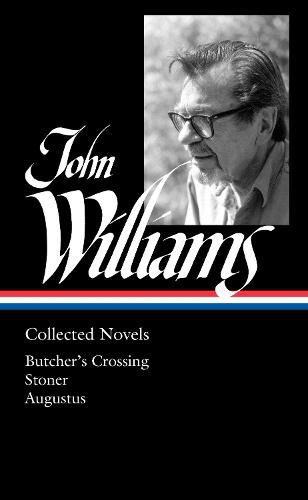Readings Newsletter
Become a Readings Member to make your shopping experience even easier.
Sign in or sign up for free!
You’re not far away from qualifying for FREE standard shipping within Australia
You’ve qualified for FREE standard shipping within Australia
The cart is loading…






For the first time, a collected edition of the major works of John Williams, including the acclaimed novel Stoner.
John Williams’s three major works have come to be recognized as modern American classics and are collected in this Library of America volume for the first time.
In Butcher’s Crossing, he unsettles the conventions of the Western novel to tell the haunting story of a buffalo hunting expedition that exposes the savagery and greed behind the myth of the frontier.
In Stoner, he portrays power politics in academe and the quiet heroism of a midwestern English professor dedicated to the honest and dogged pursuit of his craft.
In Augustus, set in ancient Rome, Williams again takes on the subject of power-more particularly, in the author’s own words, the ambivalence between the public necessity and the private want or need.
Rounding out the volume are three essays by Williams on writing fiction and his speech upon accepting the National Book Award for Augustus in 1973.
$9.00 standard shipping within Australia
FREE standard shipping within Australia for orders over $100.00
Express & International shipping calculated at checkout
For the first time, a collected edition of the major works of John Williams, including the acclaimed novel Stoner.
John Williams’s three major works have come to be recognized as modern American classics and are collected in this Library of America volume for the first time.
In Butcher’s Crossing, he unsettles the conventions of the Western novel to tell the haunting story of a buffalo hunting expedition that exposes the savagery and greed behind the myth of the frontier.
In Stoner, he portrays power politics in academe and the quiet heroism of a midwestern English professor dedicated to the honest and dogged pursuit of his craft.
In Augustus, set in ancient Rome, Williams again takes on the subject of power-more particularly, in the author’s own words, the ambivalence between the public necessity and the private want or need.
Rounding out the volume are three essays by Williams on writing fiction and his speech upon accepting the National Book Award for Augustus in 1973.